Relationship with a key person
Advice on key workers or childminders on supporting babies, infants and young children with ensuring nursery and school remains an exciting and enriching experience.
What’s a key person's role?
While going to a childminder or to nursery can be an exciting and enriching experience for a child, it can also be a stressful experience. This is partly because it is something new and unfamiliar, but also because it involves the child separating from the main person who looks after them. To help young children manage this, they need to be able to depend on a known and reliable caregiver at the setting, namely a ‘key person’. (Previously the term ‘key worker’ was commonly used to describe this role, but many nurseries now use the term, 'key person' to emphasise the central importance of the relationship between the child and the 'person' responsible for their care.)
Key people are usually allocated a small group of children to look after. They will be the main carer for each of these particular children while they are in the care of the nursery or childminder. If a child is able to form a close relationship with a ‘key’ person who is consistently available to them this will help them to feel more secure. This key person will become an additional ‘attachment figure’, in the absence of their parents or carers.
Just like with the attachment relationships that the child has formed with their parents or carers, this new relationship is a secure foundation on which the child can build their capacity to explore, play and learn.
Depending on the age of the children they care for, key people have a range of responsibilities, such as feeding, changing, activity planning and monitoring each child’s developmental progress. Through these activities, the key person’s most important task is to get to know the child as an individual and to develop a warm and empathic relationship with them. A key part of this is responding sensitively to their verbal and non-verbal cues.
Like parents, key people can’t always be perfectly attuned to their key children, and like parents, they can’t, and won’t, get it right all the time. But what is most important for the baby, toddler or young child is that they have a consistent and reliable adult who keeps trying to understand them and what they need.
Also see: Separation anxiety
-
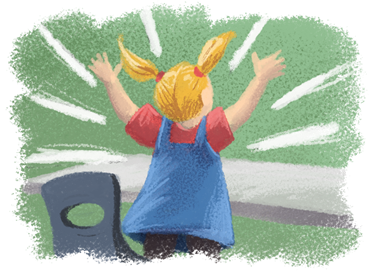
Aggression
A child needs an adult to help them to find ways to understand and express their difficult feelings. If a child feels anger very strongly, but hasn’t yet learnt what it is, it is likely ...
-
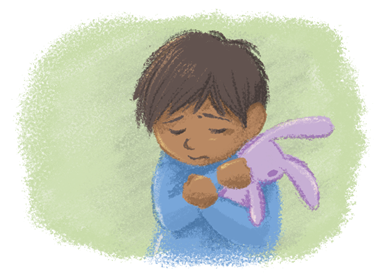
Anxiety
All babies and children from time to time will experience some fear or anxiety. They might do so when they come up against challenging tasks, unfamiliar people (known as stranger anxiety...
-
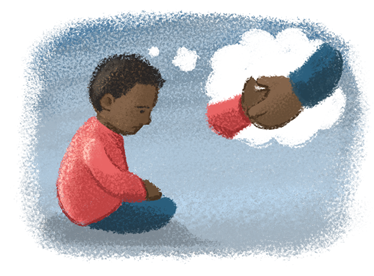
Bereavement
Because babies and young children are very aware of their environment and the emotions of those around them, it’s likely that they will notice if someone is no longer there - or if the a...
-
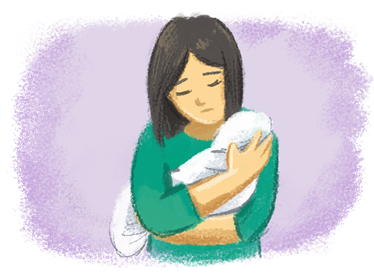
Crying
Babies and young children often cry as a way to communicate their needs and feelings. This is normal and healthy. Find out more on how to deal with crying.
-
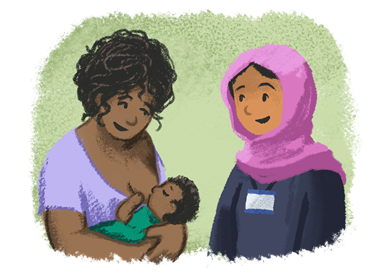
Infant feeding
All babies are different. Advice for childcare workers who support parents and carers with complicated emotions and issues around feeding.
-

Play
A child will use play to help them make sense of the world around them, and also to work through various emotions and experiences.
-
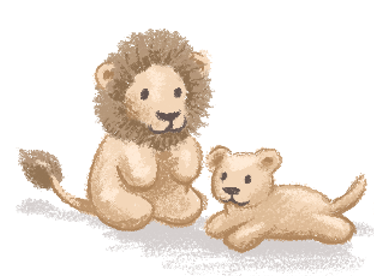
Relationship with the key person in a childcare setting
Advice on key workers or childminders on supporting babies, infants and young children with ensuring nursery and school remains an exciting and enriching experience.
-

Separation anxiety
From around 6 months, babies become anxious and get clingy and cry when their parent or carer leaves them. This is a normal part of development, which young children usually grow out of ...
-
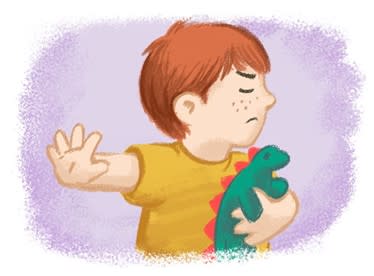
Sharing
Sharing is a really important ‘skill’ for children to acquire. It helps them connect with others and it is an important part of being able to form good social relationships based on coop...
-
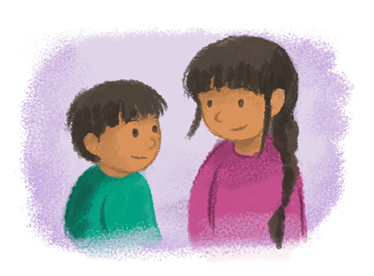
Sibling rivalry
Early years staff can play a crucial role in helping the older child have a sense of being their ‘own little person’ who is still loved and important. Find out more.
-
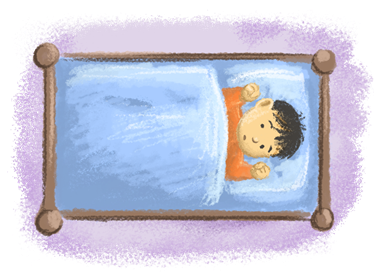
Sleep
As individuals, we all have our own sleep patterns and body rhythms, but when it comes to our ability to fall asleep easily and to stay asleep, our relationships can play a key role.
-

Tantrums
Tantrums happen when a child is feeling overwhelmed by an intense emotion that they aren’t able to process. Letting it all out by having a tantrum is the way they feel able to express ho...
-

Toileting
In their second year, as toddlers’ bodies develop, they show signs of being ready to be toilet trained. Toddlers learn to recognise more subtle sensations in their anal and urethral area...
-
Trauma
Trauma is an emotional response to an event that is deeply frightening or distressing and can affect babies, infants and young children in ways they might not be able to communicate. Fin...
-
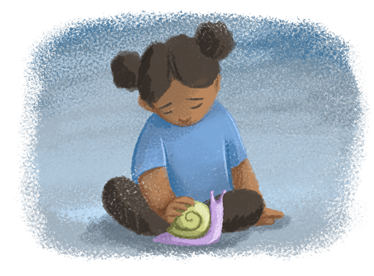
Withdrawn behaviour
Right from birth, babies have an inbuilt instinct to interact with their caregivers. But too much interaction or excitement can be uncomfortable for babies, and they need downtime as wel...
Other early years resources
We have a selection of resources for early years wellbeing including working with babies & young children on digital platforms.